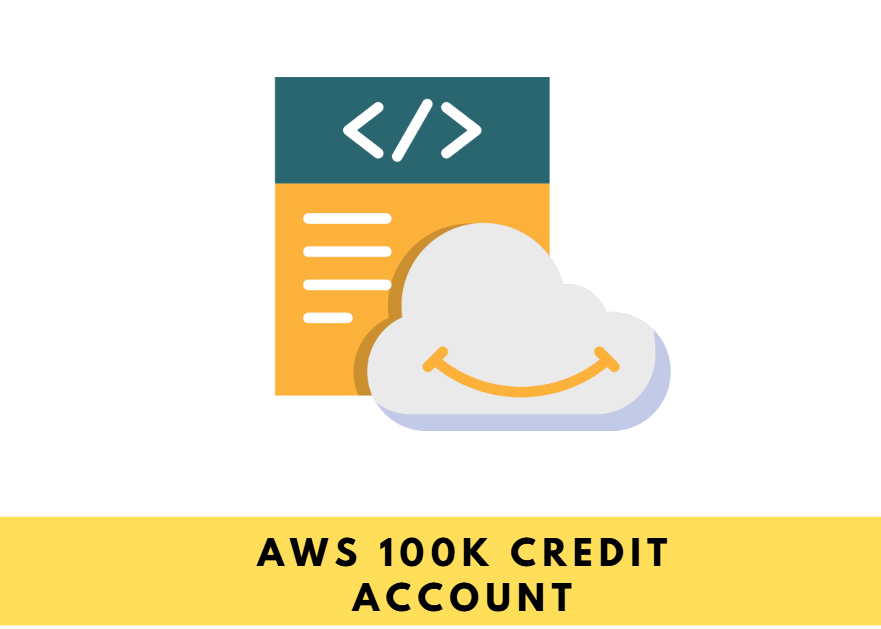AWS Credits can be a financial lifeline for startups, businesses and developers working with Amazon Web Services. These credits cover a range of services such as compute power, storage, and machine learning capabilities, making it possible for businesses to scale without incurring full costs from day one.
However, while legitimate means of securing these credits exist, purchasing them through third parties potentially carries many risks.
Ways to Earn AWS Credits
Before delving into the world of third-party AWS credits, learn about legitimate ways to earn AWS credits:
AWS Activate: Amazon offers the AWS Activate program, which provides credit and support to eligible startups and businesses. The program often offers packages ranging from $5,000 to $100,000 depending on qualifications, such as the need to be supported by accredited venture capitalists or accelerators.
AWS Free Tier: This option provides limited-time access to services such as EC2, S3, and Lambda for 12 months to build and test small-scale applications.
AWS Events and Hackathons: From time to time, AWS sponsors events, hackathons, and workshops where participants can earn free credits.
Third Party AWS Credit Accounts: Allure and Reality
Buying AWS credits through third-party sources can seem like an easy shortcut, especially if you don’t immediately qualify for AWS Activate or similar programs. These credits can sometimes be available at a discount, which makes them attractive for cost-saving purposes.
How much does a $100,000 AWS credit account cost in the third-party marketplace?
The price of third-party AWS credits varies depending on the vendor, credit validity, and volume purchased.
A $100,000 credit account can cost anywhere from $5,000 to $30,000, although prices fluctuate widely.
Factors affecting cost include:
Credit duration: Credits that expire within a few months are often cheaper.
Service Restrictions: Some credits only apply to certain services like EC2 or S3.
Source Verification: Vendors claiming credit through valid AWS programs typically charge more.
Risks in buy AWS Credits from Third Parties
While third-party AWS credits may seem tempting, there are significant risks associated with such purchases
Risk of AWS Account Suspension
If AWS detects unusual credit activity or learns that credits have been transferred or used in a manner that violates its policies, they may suspend or permanently ban your AWS account. Since AWS clearly states that credits cannot be transferred, purchasing them from unauthorized sources violates AWS’ Terms of Service, risking suspension or loss of access.
Legal issues and policy violations
AWS enforces a strict policy against the resale or unauthorized transfer of credits. Engaging in these practices may lead to legal repercussions, as it constitutes a violation of AWS policies Violating these policies can affect your credibility, especially for businesses that rely heavily on compliance with platform guidelines.
Untrustworthy sellers and possible scams
The market for third party credits is not well regulated. Some sellers may not provide credit as promised or may sell expired or invalid credit. Furthermore, once funds are exchanged, it is challenging to recover funds if credits are unused or accounts are suspended.
Lack of customer support
Credits obtained through third-party sources generally lack official AWS support. This means that if problems arise — such as account suspensions or credit errors — AWS may not provide assistance, leaving you to handle the problem independently. In contrast, credits from AWS Activate come with support services that can be critical for startups or businesses with limited technical resources.
Benefits of AWS Credits: Why $100,000 in credits is worth it
Despite the risks associated with third-party purchases, AWS Credits can be extremely beneficial when obtained through legitimate means.
Cost reduction for startups
AWS Credits can help startups and businesses test their ideas, develop products, and build infrastructure without incurring upfront costs. With a $100,000 credit, companies can allocate resources to development, testing, and early-stage scaling while using high-end AWS services without immediate cost.
Access to a wide range of services
With AWS credits, businesses can access services like EC2, S3, RDS and more, allowing them to implement complex architectures and improve application performance. For example:
Compute and storage: Use EC2 and S3 storage to manage large datasets, applications, and computing needs.
Machine learning and AI: Explore AWS’s ML and AI services, including Sage Maker, to integrate intelligent features into applications.
Data Analytics: Use AWS Redshift or Athena for data analytics without the initial cost.
Scalability and performance optimization
AWS Credit can help businesses test their scaling potential and optimize their cloud environment for future growth. This is especially beneficial for startups that are growing rapidly or planning to roll out new features that may increase resource costs.
Conclusion: Is It Worth the Risk?
While a $100,000 AWS credit account offers immense value, especially for startups and businesses with high resource demands, purchasing such accounts from third-party vendors is fraught with risks. The potential for account suspension, legal issues, and unreliability far outweighs the short-term savings.
Instead, focusing on legitimate methods to acquire AWS credits ensures both compliance and access to valuable customer support, which can be crucial as your business grows and scales.
FAQ
Can I transfer AWS credits from one account to another?
No, AWS credits are non-transferable and linked to the original account.
How long are AWS credits valid?
AWS credits typically expire 1-2 years from the issuance date, but check the specific terms for each program.
Are there any hidden costs in using AWS credits?
While credits cover service fees, costs associated with overages or specific premium support plans may still apply.
